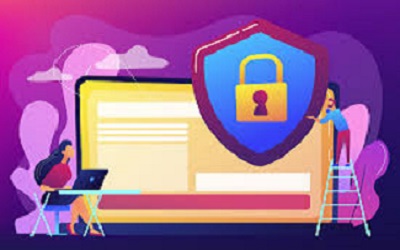Anything of value needs to be kept safe. This is certainly true of your online privacy and personal data. Because as valuable as the internet has become, that huge and far-reaching pool of unlimited information – it is a ‘public space’. Nothing on the internet is entirely private or safe – unless of course you take conscious steps to safeguard them. Thus we recommend a few essential tips on staying safe online in Nigeria as you read along. Your financial details and personal life will certainly thank you for that extra investment.
It is particularly more important to practice staying safe online in Nigeria, because of the scourge of expert scammers called ‘Yahoo Boys’. Many of them have devised ingenious means to monitor the devices and communications of unsuspecting people in order to find anything that suggests ‘money’. You can no longer afford to be careless as an internet user in Nigeria. Learn to stay guarded online; and we will show you how in this article.
Staying Safe Online in Nigeria: Here’s How
Free But Not Free: Be Extra Vigilant on Free Wi-Fi
Getting access to free wireless networks provided as a value-added service at an eatery, restaurant, airport, or bank feels great. It’s a quick opportunity to browse the internet and conserve your paid cellular data. Some users get so greedy that they download or stream lots of videos for hours unending on a supposed free Wi-fi.
But a free Wi-fi network is a living, breathing booby trap. There are high chances that one or more hackers are connected to such unguarded networks, waiting to trap anyone. They can make use of expert spyware to monitor other users. Even worse, hackers can create a free but false Wi-fi hotspot – masking itself as the one provided by your host. Other users may unknowingly connect to the fake Wi-fi and compromise or expose their sensitive data without thinking. Therefore, take note of the following:
- One critical rule of thumb when using public or free Wi-fi is NEVER TO SEND OR ACCESS PRIVATE OR FINANCIAL DATA ON A PUBLIC/FREE WI-FI. As much as possible, avoid it. If necessary, use a Virtual Private Network (VPN) to secure your network connection (if you must use a public Wi-fi).
- Carefully confirm the name of the official Wi-fi you are connected to, to be sure it is the actual one provided by your host. You can easily do that by asking a recognized employee of the bank, eatery or hotel (as the case may be) to identify it.
- Many smartphones can automatically connect to public Wi-fi networks. Disable this feature in the phone’s Settings, and rather choose to MANUALLY connect to available Wi-fi networks. Many providers of free Wi-fi networks in Nigeria are also now more conscious of the ever-increasing security threats. Thus, they password their Wi-fi networks. It would be far better to seek permission and get the secured password to access your host’s standard Wi-fi network.
- You can also turn off all automatic downloads, file sharing and remote login in your computer or phone’s Settings. Ensure you are in direct control of any existing method of access to your computer or smartphone.
Physically Secure Your Devices with a Passcode
Create a passcode, PIN, or use other available biometric authentication methods to lock your phone, tablet or computer while it is idle. This is particularly useful, if you usually access a public or free Wi-fi network. Or if other users have access to your device (especially when you are not close to it).
Look Out for Secured Websites (HTTPS)
It is far better for you to connect to a secured website, which is identifiable by the ‘https:’ prefix. If the prefix is not visible, you must surely see a padlock at the start of the address bar. The simple reason being that secured websites send and receive data in encrypted form. This makes it more difficult for hackers to access your website activity or communications while browsing.
Properly Sign Out of All Your Online Accounts
It is highly probable that while using a browser, you may have closed a tab or window while any of your online accounts are still open. Some websites (such as banks or crypto accounts) would automatically log you out of your account after a few seconds, for added security. However, make it a habit to properly sign out of any (and every) online account you open before leaving the browser. That can prevent throwing that account wide open for hackers to access later on (using a downloaded link still in the browser).
Use Strong and Unique Passwords as a Rule
Be advised not to use THE SAME PASSWORD for several online accounts at once. That is very dangerous. Clearly if a hacker discovers such a password, and further finds more than one account with that password – all of them are endangered.
You can generate unique, complex passwords that will be automatically stored by your browser with the Password Manager feature. Google Chrome’s Password Manager is a famous example. It is available for all registered Google account holders; and all the passwords are automatically stored on the Cloud. That ensures you can log in to your Google account with just one password from any device and location. Thereafter, you only need to remember your google account password to access your entire repository of passwords.
Use Encryption to Safeguard Your Stored Data
You can encrypt the documents, videos, audios and hard disk storage of any and all of your devices. Even if a stubborn or determined hacker breaks into your data or files, he/she will not be able to comprehend the file’s contents.
Use Two-Factor Authentication (2FA)
With 2FA, you can enforce extra security while signing in to any of your online accounts with your username and password. It sends a code to your registered phone number or email address to confirm you are the account owner. There are also special authenticator apps you can download to perform 2FA in your sensitive accounts. In essence, a hacker cannot have direct access to such accounts (since he/she does not own the phone number).
Clear Out Your Browser’s History
Each time you open a website, your computer or phone stores a link to the web page (called ‘cookie’) in the browser’s History section. These cookies remain in your browser for as long as you allow it – unless you manually clear them out of your browser’s history. That means anyone can go back and click these links to return to the exact page you opened. Regularly clearing out your browser’s history immediately after use is particularly important if other persons have access to your device. It is more critically recommended if you use a public Wi-fi network quite often.
Regular Software Updates are Important
You need to patch up and eliminate security flaws existing in any of your apps/software or operating system. Thus, you should perform regular software updates on all of them.
Guard Your Personal Information
By all means, reduce the amount of personal data you reveal to others on social media. Hackers and other criminals may be checking on them. You can also restrict who has access to your social media account in the ‘Privacy’ settings.
Perform Regular Backup of Your Data
Doing a regular backup of data on secure physical storage devices and/or on cloud storage (such as Google Drive or Dropbox) is very beneficial. It will help you to access, recover or restore all your data on any other device at any time. In the event of sudden loss of data, a hacker invasion or malware attack, your data will remain intact and accessible later on.
Avoid Opening Unrecognized Links
Do not open any email or text message with attachments or clickable links/buttons that you cannot easily verify, or you do not recognize its source. Carefully verify the source. It is even more dangerous if these links request for your personal data – it is better you avoid or delete them.








